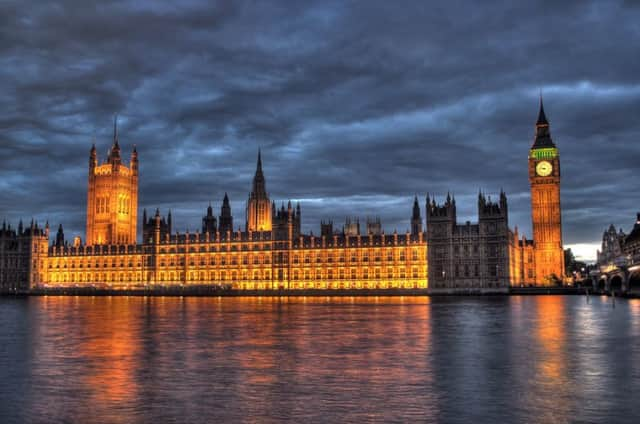House of Commons faces repair bill up to £5.7bn


A report into Britain’s most iconic biuilding by a consortium of Deloitte, AECOM and HOK commissioned by the House authorities has found that if Parliament is not relocated it will take 32 years to bring the estate up to minimum standards including fire containment and disabled access at a cost of £5.7 billion to the taxpayer.
If the World Heritage Site is partially abandoned the work can be carried out over 11 years for between £3.9 billion and £4.4 billion.
Advertisement
Hide AdAdvertisement
Hide AdThe speediest option is for a complete move out which would see work take six years - still more than the length of a full parliament - at a cost of between £3.5 billion and £3.9 billion.
The report highlighted that the minimum requirements for the buildings were asbestos removal, fire protection, the creation of security control zones, acceptable education facilities, proper visitor screening facilities, a new home for the archives, all electrical services replaced, a restoriation of the historic interior fabric and an overhaul of the crackijng and leaking external fabric, new lifts and disabled access facilities.
On top of that it recommends additional building and remodelling of other run down parts of the the estate, a glass roofs for the Star Chamberand State Officers’ Court and redevelopment of the car park mostly used by MPs.
It also recommends that the press are moved from their historic home in the Press Gallery to a new media centre.
Richard Ware, programme director for the Palace of Westminster, said: “The Palace has reached a turning point in its history, with many features needing major renovation.
“Even the extensive programme of urgent repairs carried out over the last five years is barely scratching the surface.”
Deloitte partner Alex Bell said: “Our analysis indicates that the restoration and renewal of the UK’s most famous building will be a challenging and potentially expensive exercise, but that it could also generate significant benefits to Parliament and the UK more widely.
“MPs and peers face unenviable decisions, although recent mega-project success stories such as London 2012 and Crossrail demonstrate the UK’s capability to deliver such prjects successfully.”
Advertisement
Hide AdAdvertisement
Hide AdThe report has deliberately not recommended a course of action to MPs and peers but instead laid out five options for them to choose.
However, the detailed report notes that the radical option of moving out for six years will be the most successful in meeting the criteria laid out by the House Authorities with 24 out of 32, although it accepts the major weakness would be cashflow for the project.
Staying in for 32 years only meets two of the criteria in full while, partially closing down sections of the Houses of Parliament meets none of the 32 criteria in full.
The report also notes that 45 per cent of the cost of repairs staying the House would be inflation over the 32 year period.